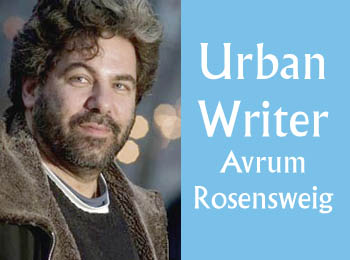There was a time in the Toronto Jewish community, about half a century ago and before, when diversity of opinion was respected.
Journals from across the philosophical spectrum were read by community members who were OK with the idea that their neighbours’ opinions were stridently different than their own. Ideological differences were debated over a schnapps and herring. Individuals with conservative views looked forward to joining a Commie friend at a Shabbat table, arguing the existence of God, the significance of a Jewish state, the civil rights movement and the interpretation of the biblical “Esau hates Jacob” story. We seemed to have been more at home with our communal and personal belief systems, so much so that we allowed others their points of view. Change was celebrated. Differences were cause for dancing.
Then free love dried up. The generation that survived the war and antisemitism in downtown Toronto started making it. They sold their panelled wagons and trotted over to the Cadillac dealership to buy an elegant car with a front end so long that the “goyim” knew we were no longer working for them.
The Toronto Jewish community had arrived and those who could afford it built or enhanced their own shuls, synagogues and temples with theatre seats and reserved parking spots for the sexton. Religious and lay leaders who were once independent in their interpretation of Jewish laws and the community voice found themselves seat-belted into the plush passenger side of their ba’alei batim’s Eldorados, beholden to the families who built the edifices in which they operated.
The free flow of ideas began disappearing, and our bold leaders, universal in their thinking, moved south or to Israel. Denominational and ideological fiefdoms sprang up, and the push and pull of religious and institutional variety became a thing of the past.
The Jewish federation, a most essential central organization, followed suit, and while its message was one of unity through diversity, fundraising became its central motif, and it ultimately became what seemed like a new denomination within our community structure. Soon enough, Canadian Jewish Congress (CJC), an organizational role model in its advocacy and practice, was disbanded. The CJC was replaced by the Centre for Israel and Jewish Affairs, an entity more reflective of the old days when our community had no choice but to be insular with one voice.
For the past few years, we’ve operated as if our membership was one-dimensional in nature. Everyone took their corners, and we shut out much of the world, once again.
More recently, however, cracks began to show, and like a lyric in a Leonard Cohen song, the light shone through them. Jewish groups unaffiliated with the very safe organizations we have grown to question are cropping up and challenging the status quo. Advocacy groups within and outside shuls are fighting on behalf of the Roma community, and others are challenging the government while still supporting the State of Israel. Some rabbis are once again debating in public.
One such example was a recent intellectual battle, in this newspaper, over aspects of Torah between CJN columnist Rabbi Martin Lockshin and Rabbi Daniel Korobkin of Beth Avraham Yoseph of Toronto (“A book for the thoughtful, ‘skeptical’ Orthodox,” Jan. 10; “When Orthodox scholarship is neither,” Jan. 31, and on cjnews.com). How refreshing.
While the cracks may be small, it’s just a question of time before the Toronto Jewish community morphs back, and moves forward, to a place with more eclectic leadership and a membership that embraces diversity of thought about our peoplehood, Israel, Torah and our place in the world.
